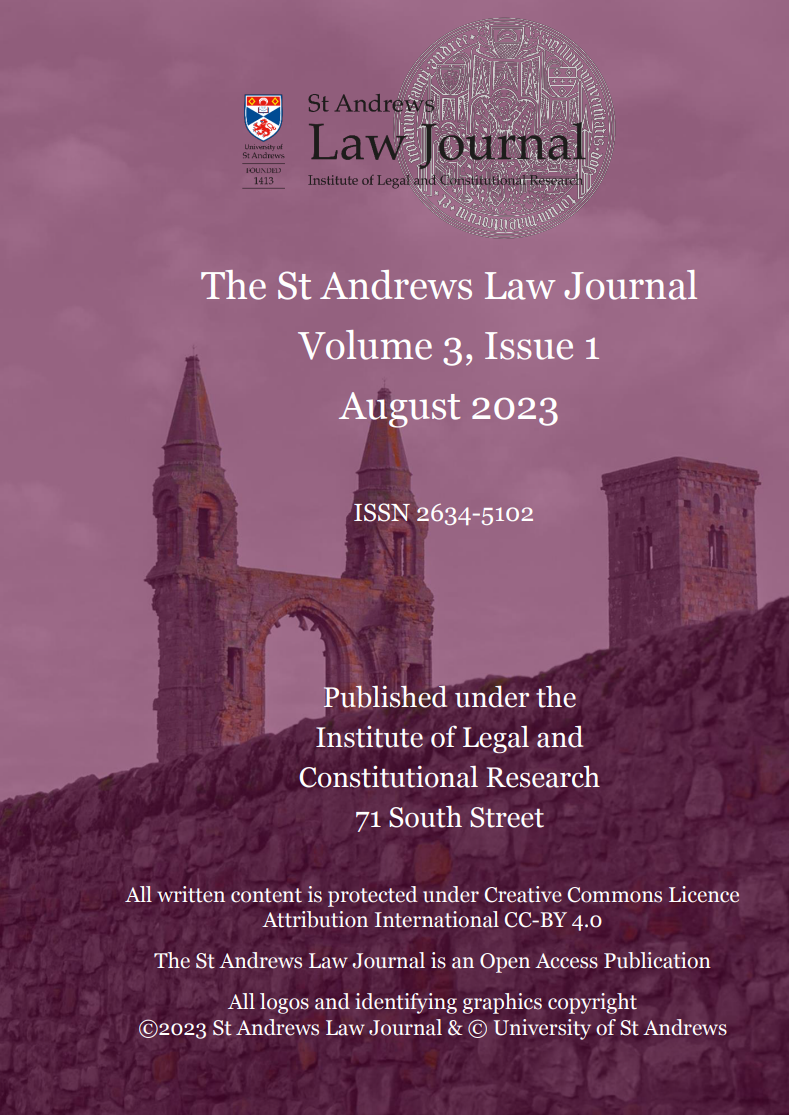Post-Brexit Recognition and Enforcement of Judgements: Problems and Solutions
Main Article Content
Abstract
The reciprocal recognition and enforcement of judgments is key for the globalised economy in which we live. Post-Brexit, there has been a significant change in the legal infrastructure that formerly allowed for the recognition and enforcement of judgments between the EU Member States with the removal of the United Kingdom from the Brussels regime. The article assesses the implications of the loss of the Brussels I Recast Regulation (BIRR) for the recognition and enforcement between Scottish and EU Member State courts and critically analyse the potential post-Brexit replacements for cooperation. To reach a conclusion, Part I compares the BIRR to the existing Scots law, Part II analyses whether the Lugano II Convention would have satisfactorily replaced the BIRR and Part III determines the potential of the Hague Conventions as a way forward. Reference is made to conventions and Regulations, case law, academic commentary and other reports on this area of law. The article concludes by proposing the best option going forward for the recognition and enforcement of judgments between the UK and EU as being a bespoke UK-EU treaty, with the 2019 Hague Convention providing a temporary solution.
Article Details

This work is licensed under a Creative Commons Attribution 4.0 International License.
Authors who publish with this journal agree to the following terms:
- Authors retain copyright and grant the journal right of first publication with the work simultaneously licensed under a Creative Commons Attribution License that allows others to share the work with an acknowledgement of the work's authorship and initial publication in this journal.
- Authors are able to enter into separate, additional contractual arrangements for the non-exclusive distribution of the journal's published version of the work (e.g., post it to an institutional repository or publish it in a book), with an acknowledgement of its initial publication in this journal.
- Authors are permitted and encouraged to post their work online (e.g., in institutional repositories or on their website) prior to and during the submission process, as it can lead to productive exchanges, as well as earlier and greater citation of published work (See The Effect of Open Access).

